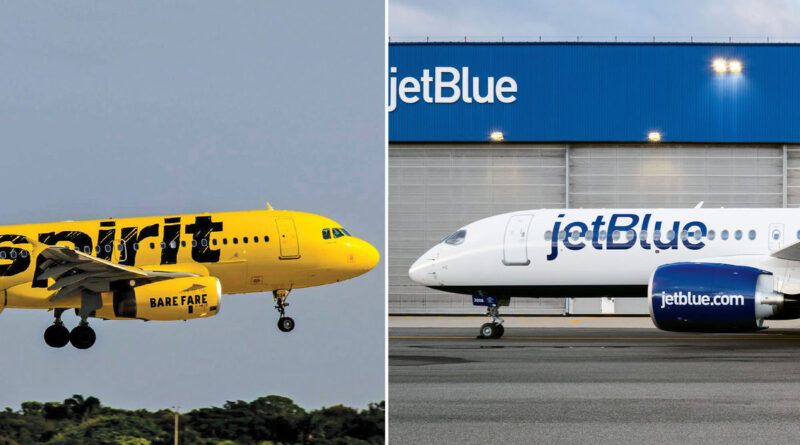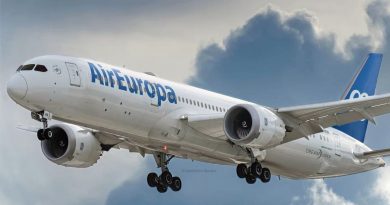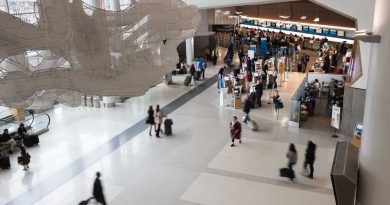JetBlue-Spirit antitrust trial getting underway
The trial to determine whether JetBlue will be able to acquire Spirit Airlines is slated to begin Tuesday in a Boston federal courthouse.
The plaintiffs in the antitrust case, which include the Department of Justice alongside six U.S. states and the District of Columbia, have sued to block the $3.8 billion merger on grounds that it would be harmful to consumers.
The proceeding is currently scheduled on the court calendar to last through Dec. 5.
In a trial brief filed Monday, the litigants reiterated arguments from when they filed the case in March. An absorption of Spirit by JetBlue would harm consumers by removing a disruptive ultralow-cost carrier (ULCC) from the market, the DOJ contends, which would lead to fare increases.
The Justice Department also said that on 51 nonstop routes in which JetBlue and Spirit compete directly, their combined market share is high enough to make the merger presumptively illegal.
And because of industry constraints, including a pilot shortage and supply chain problems, lost competition from Spirit is unlikely to be replaced by other ULCCs.
“Although all passengers will feel the impact of this acquisition, the harms will fall disproportionately on cost-conscious consumers,” the brief says. “These customers depend on competition between JetBlue and Spirit, because without Spirit, they might be priced out of the market altogether.”
Since announcing the merger plans, JetBlue has sought to ease competition concerns at airports in which JetBlue and Spirit have the highest market share. In Boston, Newark and Fort Lauderdale, JetBlue has an agreement to transfer Spirit’s gates and or landing authorizations to budget carrier Allegiant.
At LaGuardia, JetBlue has agreed to turn over Spirit’s holdings to Frontier.
Repeatedly since agreeing to merge, JetBlue and Spirit executives have argued that a larger JetBlue would be a boon to consumers, since its bigger scale would position JetBlue to be a more effective low-fare competitor with the big four U.S. carriers — American, Delta, Southwest and United — which together control approximately 80% of the domestic U.S. market.
JetBlue has also announced expansion plans that would be enabled by the merger, such as flying approximately 25 routes from Orlando by 2027 that neither JetBlue nor Spirit currently fly.
The merger would offer consumer benefits in terms of comfort and service. JetBlue plans to retrofit Spirit’s fleet of densely configured aircraft to conform with JetBlue’s more spacious cabins.
Emerging financial challenges at Spirit could also bolster the JetBlue-Spirit case. Last week, Spirit reported a third quarter net loss of $157.6 million and a pre-tax operating margin of 16.2%.
“We continue to believe merging with JetBlue and creating a viable competitor to the Big Four U.S. airlines is in the best interest of consumers, team members and shareholders,” Spirit CEO Ted Christie said as those earnings were announced.
Source: Read Full Article



